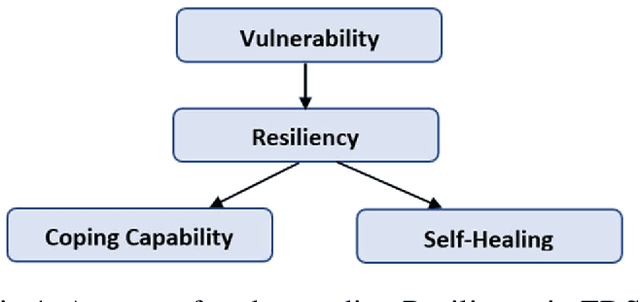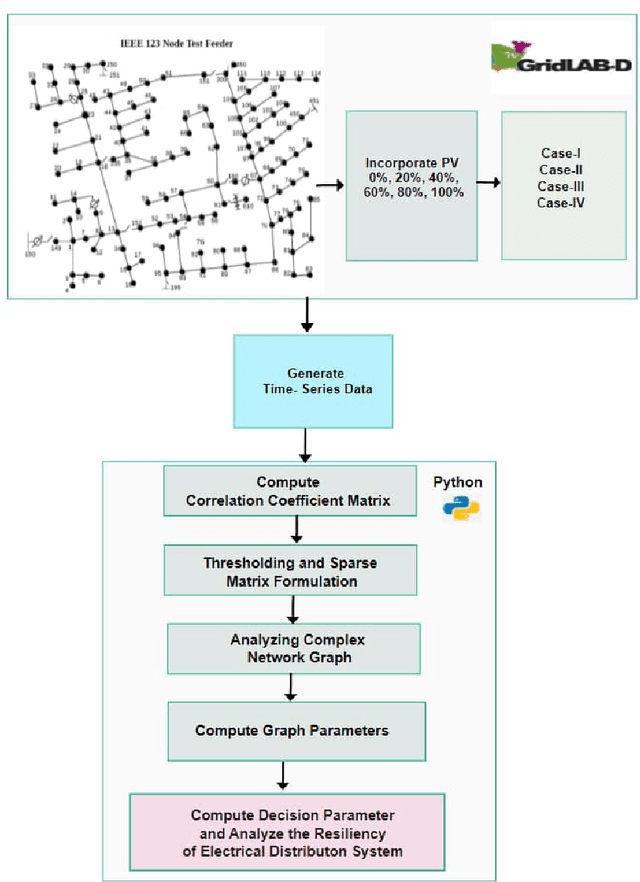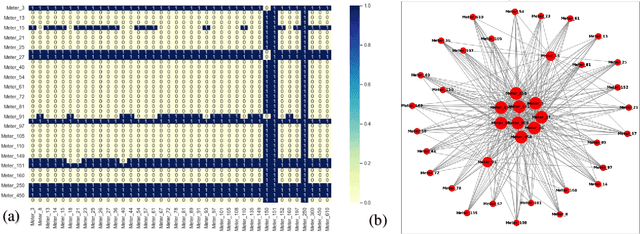A methodology for identifying resiliency in renewable electrical distribution system using complex network
Paper and Code
Aug 24, 2022



Recently, Electrical Distribution Systems are extensively penetrated with the Distributed Energy Resources (DERs) to cater the energy demands with general perception that it enhances the system resiliency. However, it may be adverse for the grid operation due to various factors like its intermittent availability, dynamics in weather condition, introduction of nonlinearity, complexity etc. This needs a detailed understanding of system resiliency that our method proposes here. We introduce a methodology using complex network theory to identify the resiliency of distribution system when incorporated with Solar PV generation under various undesirable configurations. Complex correlated networks for different conditions were obtained and various network parameters were computed for identifying the resiliency of those networks. The proposed methodology identifies the hosting capacity of solar panels in the system while maintaining the resiliency under different unwanted conditions hence helps to obtain an optimal allocation topology for solar panels in the system. The proposed method also identifies the critical nodes that are highly sensitive to the changes and could drive the system into non-resiliency. This framework was demonstrated on IEEE-123 Test Feeder system with time-series data generated using GridLAB-D and variety of analysis were performed using complex network and machine learning models.
 Add to Chrome
Add to Chrome Add to Firefox
Add to Firefox Add to Edge
Add to Edge